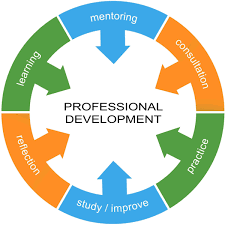The Power of Education: Shaping Minds, Changing Lives
Education is a fundamental pillar of society, shaping minds and changing lives in profound ways. It is through education that individuals acquire knowledge, skills, and values that empower them to reach their full potential and contribute meaningfully to the world around them.
One of the key benefits of education is its ability to open doors to opportunities. By gaining a solid educational foundation, individuals are better equipped to pursue their passions, secure meaningful employment, and build successful careers. Education provides the tools needed to navigate an increasingly complex and competitive global landscape.
Moreover, education fosters critical thinking skills and encourages intellectual curiosity. It enables individuals to question the status quo, analyze information critically, and form well-informed opinions. In a rapidly changing world where information is abundant but not always reliable, these skills are more important than ever.
Beyond academic knowledge, education also plays a crucial role in shaping values and attitudes. It promotes empathy, tolerance, and respect for diversity, helping create a more inclusive and harmonious society. Through education, individuals learn to appreciate different perspectives and work collaboratively towards common goals.
Education is not limited to formal schooling; it is a lifelong journey of learning and personal growth. Whether through traditional classrooms or online platforms, individuals have access to a wealth of educational resources that can enrich their lives and expand their horizons.
As we navigate the complexities of the 21st century, investing in education becomes increasingly vital. By prioritizing education at all levels – from early childhood development to adult learning programs – we can build a more prosperous, equitable, and sustainable future for generations to come.
Let us recognize the transformative power of education and commit ourselves to ensuring that every individual has access to quality educational opportunities. Together, we can shape minds, change lives, and create a brighter tomorrow for all.
Top 9 Frequently Asked Questions About Modern Education
- What are the benefits of early childhood education?
- How can parents support their child’s learning at home?
- What is the role of technology in education?
- How can students prepare for college admissions?
- What are the key challenges facing public education today?
- How does financial aid work for higher education?
- What is the impact of standardized testing on student learning?
- How can teachers promote diversity and inclusion in the classroom?
- What are the current trends in online education?
What are the benefits of early childhood education?
Early childhood education offers a multitude of benefits that lay the foundation for a child’s lifelong development and success. By engaging in structured learning experiences at a young age, children not only acquire essential academic skills but also develop crucial social and emotional competencies. Early childhood education fosters cognitive growth, language development, and problem-solving abilities, setting the stage for future academic achievement. Furthermore, it promotes socialization, teamwork, and empathy, helping children build positive relationships and navigate social interactions effectively. Investing in early childhood education is investing in the future generation’s well-being and ensuring that every child has the opportunity to thrive academically, socially, and emotionally.
How can parents support their child’s learning at home?
Parents play a crucial role in supporting their child’s learning at home by creating a conducive environment that fosters curiosity, exploration, and academic growth. One effective way parents can support their child’s learning is by establishing a consistent routine that includes designated study times and breaks for relaxation. Encouraging open communication about schoolwork, asking questions to spark critical thinking, and providing positive reinforcement for achievements can also motivate children to engage actively in their learning process. Additionally, parents can utilize resources such as educational games, books, and online platforms to supplement classroom learning and make education enjoyable and interactive for their child. By demonstrating a genuine interest in their child’s academic progress and offering guidance and encouragement along the way, parents can empower their children to reach their full potential and succeed academically.
What is the role of technology in education?
Technology plays a pivotal role in modern education, revolutionizing the way students learn and teachers instruct. From interactive digital tools and online resources to virtual classrooms and educational apps, technology enhances the educational experience by providing personalized learning opportunities, fostering collaboration among students, and expanding access to knowledge beyond traditional boundaries. By integrating technology into education, students can engage with course material in innovative ways, develop essential digital literacy skills, and prepare for success in an increasingly tech-driven world. Moreover, technology enables educators to create dynamic learning environments that cater to diverse learning styles and promote creativity and critical thinking. Ultimately, the role of technology in education is to empower learners, inspire curiosity, and pave the way for a more connected and inclusive educational landscape.
How can students prepare for college admissions?
Preparing for college admissions can be a daunting task, but with careful planning and dedication, students can navigate the process successfully. To start, students should focus on maintaining a strong academic record by taking challenging courses and striving for excellence in their studies. It is also important to actively participate in extracurricular activities that showcase their interests and talents, as well as demonstrate leadership skills and community involvement. Additionally, preparing for standardized tests like the SAT or ACT, seeking guidance from school counselors or college advisors, and researching potential colleges and universities can all contribute to a well-rounded college application. By staying organized, setting goals, and seeking support when needed, students can position themselves for success in the competitive college admissions process.
What are the key challenges facing public education today?
In today’s public education landscape, several key challenges loom large, impacting the quality and effectiveness of learning experiences. One significant issue is the persistent achievement gap, where disparities in educational outcomes exist among students based on factors such as socioeconomic status, race, and access to resources. Additionally, inadequate funding and resource allocation pose obstacles to providing equitable opportunities for all learners. Another pressing challenge is the need to adapt to rapidly evolving technology and teaching methods while ensuring that educators receive adequate training and support. Addressing these challenges requires a comprehensive approach that prioritizes equity, innovation, and continuous improvement in public education systems.
How does financial aid work for higher education?
Financial aid for higher education encompasses a variety of resources and programs designed to help students offset the costs of college tuition, fees, and living expenses. Students can apply for financial aid through federal, state, institutional, and private sources to help fund their education. Common forms of financial aid include grants, scholarships, work-study programs, and student loans. Eligibility for financial aid is typically determined by factors such as income level, academic merit, and enrollment status. By completing the Free Application for Federal Student Aid (FAFSA) form, students can assess their eligibility for various types of financial assistance and make informed decisions about how to finance their higher education goals.
What is the impact of standardized testing on student learning?
Standardized testing has been a topic of debate in the field of education, with varying perspectives on its impact on student learning. Proponents argue that standardized tests provide valuable data to assess student performance, identify areas for improvement, and hold schools accountable for academic outcomes. These tests are seen as a way to measure student achievement objectively and ensure that all students are meeting established learning standards. However, critics raise concerns about the potential negative effects of standardized testing, such as narrowing curriculum focus, promoting teaching to the test, and increasing stress and anxiety among students. They argue that these tests may not fully capture the breadth of student abilities and can limit creativity and critical thinking skills. Overall, the impact of standardized testing on student learning remains a complex issue that requires careful consideration of both its benefits and drawbacks in shaping educational practices.
How can teachers promote diversity and inclusion in the classroom?
Teachers can promote diversity and inclusion in the classroom by creating a welcoming and respectful environment where all students feel valued and represented. This can be achieved through incorporating diverse perspectives, cultures, and experiences into the curriculum, celebrating various traditions and holidays, and using inclusive language and teaching materials. By fostering open discussions about different identities and experiences, encouraging empathy and understanding among students, and addressing issues of bias or discrimination promptly and effectively, teachers play a crucial role in promoting a culture of diversity and inclusion that benefits all learners.
What are the current trends in online education?
Online education has experienced significant growth in recent years, with several notable trends shaping the landscape. One prominent trend is the rise of personalized learning experiences, where learners have access to customized content and adaptive learning technologies that cater to their individual needs and pace of learning. Another key trend is the increasing popularity of microlearning, which involves delivering educational content in small, bite-sized modules for quick consumption and retention. Additionally, collaborative online platforms and virtual classrooms are becoming more prevalent, enabling students to engage with peers and instructors in real-time discussions and group projects. These trends reflect a shift towards more interactive, flexible, and learner-centric approaches in online education.




